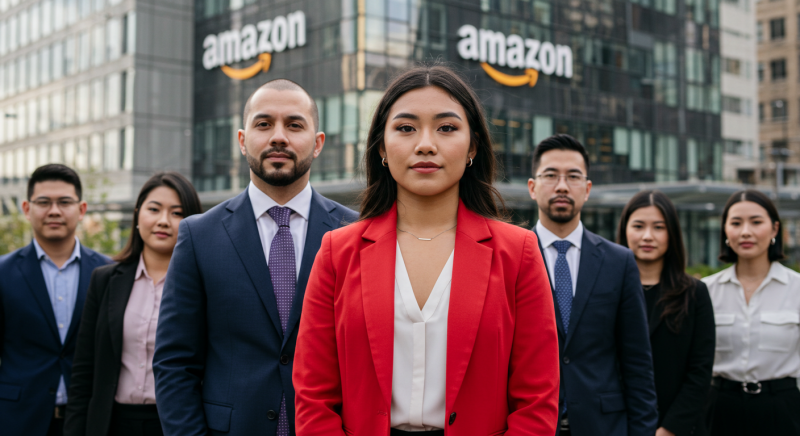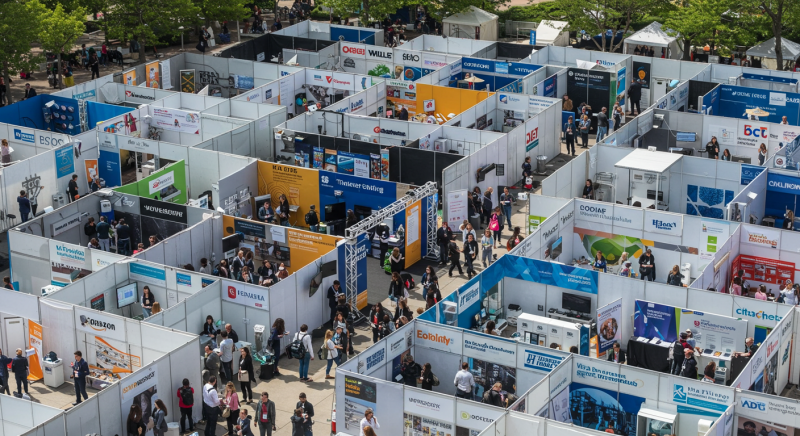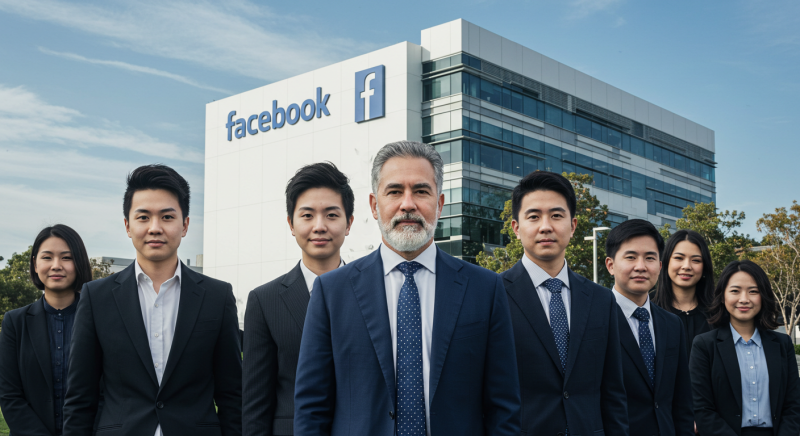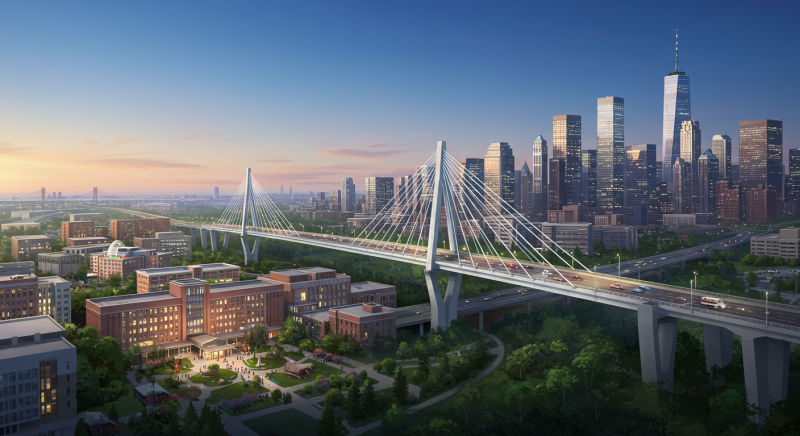Imagine standing at the precipice of graduation, your hard-earned degree in hand, yet feeling that pit in your stomach as the clock ticks down on your student visa. For thousands of international students each year, this anxiety is all too real. The dream of building a career in America hangs in the balance, dependent on finding U.S. companies offering visa sponsorship that will bet on your potential.
The journey doesn’t have to end with your studies. In fact, for many ambitious international graduates, finding U.S. companies offering visa sponsorship marks not an ending but a thrilling beginning. Despite fluctuating immigration policies and economic uncertainties, numerous American enterprises continue to recognize the invaluable perspectives and talents that international professionals bring to their teams.
This comprehensive guide will walk you through everything you need to know about U.S. companies offering visa sponsorship in 2025, from which corporations are most sponsorship-friendly to practical strategies for securing your place in America’s professional landscape.
Key Takeaways
- Major tech companies remain the most reliable U.S. companies offering visa sponsorship, but opportunities exist across diverse industries
- Understanding the H-1B visa process is crucial when targeting U.S. companies offering visa sponsorship
- Networking and strategic internships significantly increase your chances with U.S. companies offering visa sponsorship
- Regional tech hubs beyond Silicon Valley host numerous U.S. companies offering visa sponsorship
- Early preparation and company research are essential for international students seeking positions with U.S. companies offering visa sponsorship

The Current Landscape of Visa Sponsorship in America
The conversation around U.S. companies offering visa sponsorship has evolved significantly since the pandemic and political shifts of recent years. According to data from the U.S. Citizenship and Immigration Services (USCIS), H-1B visa applications have seen steady recovery, with approximately 308,000 applications submitted in the 2024 fiscal year, indicating robust interest from U.S. companies offering visa sponsorship to international talent.
The landscape of U.S. companies offering visa sponsorship continues to be dominated by the tech sector, which accounts for approximately 65% of all sponsored visas. However, opportunities have expanded into healthcare, finance, manufacturing, and emerging green technology fields as these sectors face talent shortages in specialized roles.
Recent research from the National Foundation for American Policy (NFAP) indicates that U.S. companies offering visa sponsorship tend to pay international employees salaries averaging 20% higher than market rates for comparable positions, reflecting both the quality of talent being recruited and the additional costs companies absorb during the sponsorship process.
Tech Giants Lead the Way
When discussing U.S. companies offering visa sponsorship, the major technology corporations consistently top the charts. According to H-1B visa data analyzed by MyVisaJobs.com, companies like Google, Microsoft, Amazon, and Apple collectively sponsor thousands of international employees annually.
These tech behemoths have established robust immigration support systems, with dedicated teams handling the complexities of visa applications. For international students graduating with degrees in computer science, data science, or engineering, these U.S. companies offering visa sponsorship represent golden opportunities.
Google alone sponsored over 9,700 H-1B visa applications in 2024, with average salaries exceeding $150,000 for successful candidates. Microsoft followed closely with approximately 8,500 applications, demonstrating these tech leaders’ continued commitment to international recruitment despite economic headwinds.
Beyond Silicon Valley: Emerging Hubs for Sponsored Opportunities
While Silicon Valley remains the epicenter of U.S. companies offering visa sponsorship, several emerging tech hubs have gained prominence for international graduates. Cities like Austin, Texas; Raleigh, North Carolina; and Denver, Colorado have seen dramatic increases in the number of U.S. companies offering visa sponsorship.
In Austin alone, companies like Dell, IBM, Oracle, and dozens of growing startups contributed to a 27% increase in H-1B visa applications between 2023 and 2024, according to regional economic development data. These emerging tech corridors often offer international professionals a more affordable lifestyle combined with competitive salaries from U.S. companies offering visa sponsorship.
The financial technology sector in particular has embraced international talent, with companies like Stripe, Square, and Robinhood joining established financial institutions as prominent U.S. companies offering visa sponsorship. These organizations value the global perspective international employees bring to financial products intended for worldwide markets.
Healthcare: A Growing Sector for International Talent
Healthcare has emerged as a promising field for international students seeking U.S. companies offering visa sponsorship. The Association of American Medical Colleges projects a shortage of up to 124,000 physicians by 2034, creating sustained demand for international medical graduates.
Major hospital systems like Mayo Clinic, Cleveland Clinic, and Kaiser Permanente rank among the top U.S. companies offering visa sponsorship to medical professionals. Beyond physicians, opportunities exist for nurses, medical researchers, healthcare data analysts, and health technology specialists.
Pharmaceutical giants including Pfizer, Johnson & Johnson, and Merck have significantly increased their international recruitment efforts, expanding the roster of U.S. companies offering visa sponsorship to include those focused on medical innovation and research.
Understanding the H-1B Visa Process
When targeting U.S. companies offering visa sponsorship, understanding the H-1B visa process gives international students a significant advantage. The H-1B is a specialty occupation visa requiring a bachelor’s degree or equivalent and is the primary pathway for international graduates seeking employment in America.
The process involves several critical steps:
- First, one of the U.S. companies offering visa sponsorship must file a Labor Condition Application (LCA) with the Department of Labor, certifying they’ll pay the international employee prevailing wages.
- Next, the company files the H-1B petition with USCIS on your behalf.
- Due to annual caps on H-1B visas (currently 85,000 total, with 20,000 reserved for advanced degree holders), most petitions enter a lottery system.
- If selected, USCIS processes the application, which typically takes 3-6 months for regular processing or 15 calendar days for premium processing.
Understanding these timelines is crucial when approaching U.S. companies offering visa sponsorship, as they must commit significant resources to this process.
Strategies for Finding Visa-Sponsoring Employers
Securing positions with U.S. companies offering visa sponsorship requires strategic planning that ideally begins well before graduation. Here are proven approaches for connecting with these opportunities:
Leverage University Resources
Most American universities maintain relationships with U.S. companies offering visa sponsorship. Campus career centers often have lists of companies that have historically sponsored international students and may organize targeted recruitment events. According to a survey by the Institute of International Education, international students who utilized career services increased their chances of finding U.S. companies offering visa sponsorship by approximately 40%.
Strategic Internships
Internships serve as valuable entry points to U.S. companies offering visa sponsorship. Many organizations use internship programs to evaluate international talent before committing to sponsorship. Using Curricular Practical Training (CPT) during your studies or Optional Practical Training (OPT) after graduation provides critical American work experience while building relationships with potential sponsors.
Network Deliberately
Professional networking plays an outsized role in connecting with U.S. companies offering visa sponsorship. Industry conferences, professional associations, and alumni networks create valuable connections. Research from LinkedIn indicates that referred candidates are up to 15 times more likely to be hired at U.S. companies offering visa sponsorship than those applying through job boards.
Industries Most Likely to Sponsor International Talent
While technology companies dominate discussions of U.S. companies offering visa sponsorship, several other industries actively recruit international graduates:
Finance and Banking
Financial institutions like JPMorgan Chase, Goldman Sachs, and Morgan Stanley rank among leading U.S. companies offering visa sponsorship, particularly for roles in quantitative analysis, financial technology, and risk management. According to H-1B data from the Department of Labor, the banking sector sponsored approximately 12,500 visas in 2024, representing about 8% of all sponsored positions.
Management Consulting
Consulting giants including McKinsey, Boston Consulting Group, and Deloitte continue to be reliable U.S. companies offering visa sponsorship. These firms value international perspectives and linguistic diversity, especially for projects with global reach. The consulting sector maintained consistent sponsorship levels even during economic uncertainty, with approximately 7,000 H-1B visas sponsored in 2024.
Engineering and Manufacturing
Traditional engineering companies like General Electric, Boeing, and Tesla have increased their presence among U.S. companies offering visa sponsorship as they compete for specialized technical talent. The manufacturing sector has experienced particular growth in sponsorship for roles focused on automation, robotics, and sustainable production methods.
Preparing Your Application for Success
When targeting U.S. companies offering visa sponsorship, your application strategy requires special considerations:
Highlight Unique Value Proposition
U.S. companies offering visa sponsorship need compelling reasons to undertake the expense and complexity of the sponsorship process. In your applications, emphasize unique skills, international perspectives, or specialized knowledge that domestic candidates may not possess. Research by the Society for Human Resource Management suggests that companies primarily sponsor international employees for specialized skills (72%) and linguistic/cultural expertise (58%).
Address Sponsorship Proactively
When applying to U.S. companies offering visa sponsorship, addressing the sponsorship question professionally is crucial. Rather than asking “Do you sponsor visas?” in initial conversations, focus on demonstrating exceptional value first. Later in the process, frame sponsorship as an investment in unique talent rather than a burdensome request.
Demonstrate Long-Term Commitment
U.S. companies offering visa sponsorship seek candidates who will provide return on their investment. Conveying genuine interest in building a career with the organization—not just obtaining visa status—significantly increases your chances. Companies report that perceived flight risk is a primary concern when evaluating international candidates.

Success Stories: From International Student to Sponsored Professional
The journey to securing positions with U.S. companies offering visa sponsorship often includes inspiring success stories that demonstrate persistence and strategic planning.
Take Maria Kovačević, who graduated from Indiana University with a Master’s in Data Science in 2023. Rather than limiting her search to traditional tech hubs, Maria researched emerging companies in the healthcare analytics space across the Midwest. Through a university alumni connection, she secured an interview with a growing Chicago-based health tech firm eager to expand internationally. By highlighting her unique combination of technical skills and cultural insights relevant to European markets, she convinced this midsize company to join the ranks of U.S. companies offering visa sponsorship.
Similarly, Rajiv Patel leveraged his mechanical engineering internship at a Texas manufacturing firm to demonstrate exceptional value before graduation. By developing an innovative process improvement that saved the company over $200,000 annually, he created a compelling business case for his sponsorship. His manager became his advocate within the organization, convincing leadership to add their company to the list of U.S. companies offering visa sponsorship rather than lose his talent.
These stories highlight that success with U.S. companies offering visa sponsorship often comes through strategic positioning and demonstrating exceptional value to potential employers.
Navigating Sponsorship Challenges
Even as you target U.S. companies offering visa sponsorship, preparing for potential challenges improves your chances of success:
Timing Considerations
The H-1B visa filing period typically opens on April 1st each year for employment beginning in October. This creates critical timing challenges for international students graduating in May or December. Planning for potential OPT extensions or identifying U.S. companies offering visa sponsorship that have alternative visa strategies becomes essential for maintaining continuous employment authorization.
Alternative Visa Pathways
While the H-1B remains the primary vehicle for employment-based immigration, some U.S. companies offering visa sponsorship utilize alternative pathways. These might include O-1 visas for individuals with extraordinary ability, E-3 visas for Australian professionals, or TN visas for Mexican and Canadian citizens under USMCA provisions. Researching these alternatives expands your options when approaching U.S. companies offering visa sponsorship.
Regional Advantages
Certain areas offer special incentives for U.S. companies offering visa sponsorship. For example, regions designated as “H-1B dependent employers” face fewer restrictions when hiring international STEM graduates. Similarly, some states operate initiatives to attract foreign talent to revitalize local economies, creating partnership opportunities with U.S. companies offering visa sponsorship in those regions.
Conclusion: Your Roadmap to Success
The journey to finding U.S. companies offering visa sponsorship may seem daunting, but thousands of international students successfully navigate this path each year. By starting early, researching thoroughly, building strategic networks, and demonstrating exceptional value, you position yourself for success in an increasingly competitive landscape.
Remember that U.S. companies offering visa sponsorship make significant investments when bringing international talent aboard. Your task is to demonstrate that you represent not just a qualified candidate, but an exceptional one whose unique perspectives and abilities make the complex sponsorship process worthwhile.
As immigration policies evolve and labor markets shift, staying informed about U.S. companies offering visa sponsorship in your field becomes an ongoing process. However, the fundamental formula remains consistent: exceptional skills combined with strategic preparation create opportunities with U.S. companies offering visa sponsorship, opening doors to rewarding international careers.

Frequently Asked Questions
Which industries have the highest number of U.S. companies offering visa sponsorship?
Technology, healthcare, finance, engineering, and management consulting consistently rank as the top industries for U.S. companies offering visa sponsorship. Within technology, software development, data science, artificial intelligence, and cybersecurity specializations see the highest sponsorship rates.
How much does it cost companies to sponsor an H-1B visa?
U.S. companies offering visa sponsorship typically invest between $5,000 and $10,000 in direct filing fees and legal costs for each H-1B application. Premium processing adds an additional $2,500. These figures help explain why companies carefully select candidates for sponsorship.
Do startups sponsor international employees?
While established corporations dominate lists of U.S. companies offering visa sponsorship, venture-backed startups increasingly sponsor key talent, particularly in specialized technical roles. Startups that have secured Series B funding or beyond generally have more resources for sponsorship than early-stage companies.
How does Optional Practical Training (OPT) relate to finding U.S. companies offering visa sponsorship?
OPT provides international students up to 12 months of work authorization after graduation (with a 24-month extension for STEM graduates). This period is invaluable for demonstrating value to U.S. companies offering visa sponsorship without requiring immediate visa commitment from employers.
What are the chances of winning the H-1B lottery?
Selection probabilities in the H-1B lottery vary annually based on application volume. In recent years, advanced degree holders have had approximately 40-45% selection probability, while regular cap applicants faced roughly 25-30% odds. These statistics highlight why considering multiple U.S. companies offering visa sponsorship improves your chances.
Can I apply for positions with U.S. companies offering visa sponsorship while I’m still studying?
Absolutely! Many U.S. companies offering visa sponsorship prefer hiring international students still in their academic programs through internships or early recruitment initiatives. This approach allows companies to evaluate candidates before committing to sponsorship and helps with timing visa applications optimally.
How can I determine if a company historically sponsors international employees?
Research tools like MyVisaJobs.com and H1BData.info provide searchable databases of U.S. companies offering visa sponsorship, including their sponsorship volume and typical salaries. University career centers often maintain lists of sponsorship-friendly employers, and networking with alumni from your country or program can yield valuable insights.
READ MORE
